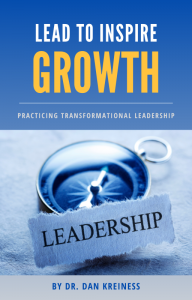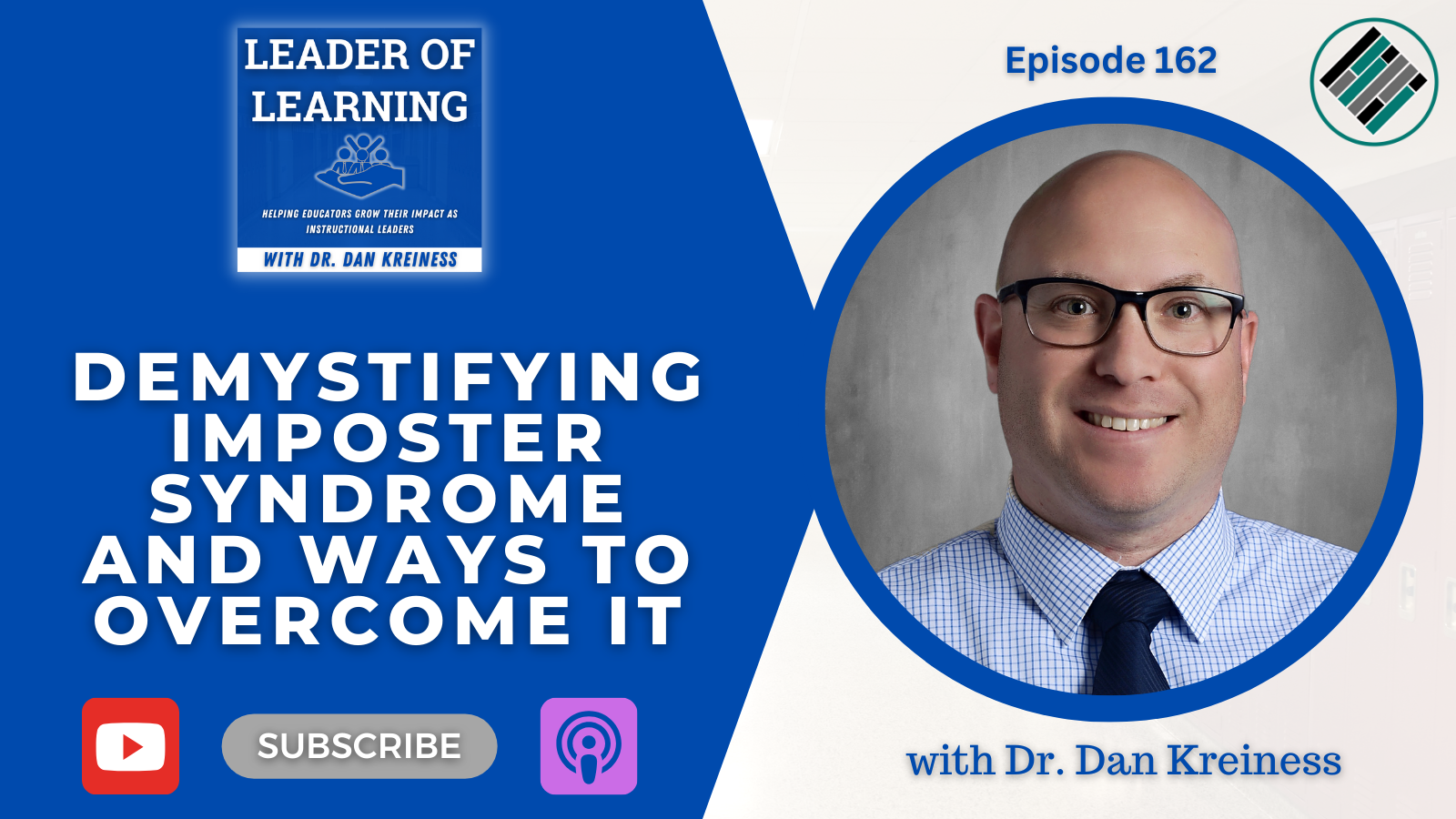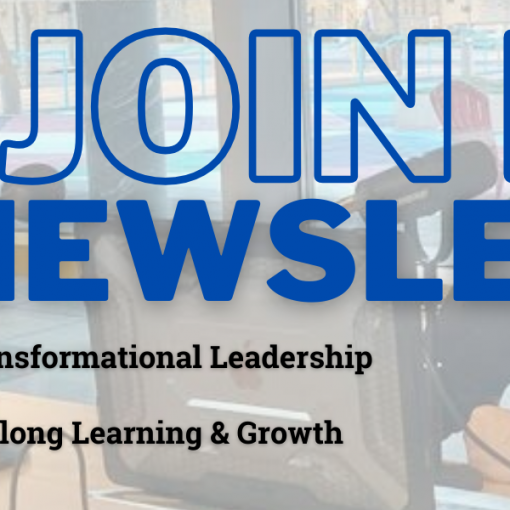In episode 162 of the Leader of Learning Podcast, host Dr. Dan Kreiness opens up about his personal experience with impostor syndrome, which led him to examine the impact of this phenomenon on educators and content creators. He shares insights into understanding impostor syndrome, recognizing its various types, and provides strategies for overcoming it. In this episode, we will delve into the different facets of impostor syndrome, its effects, and practical methods for combating it.
[Tweet “Check out episode 162 of the Leader Of Learning podcast with @dr_kreiness at leaderoflearning.com/episode162! #leaderoflearning”]
In a recent episode of the Leader of Learning podcast, host Dr. Dan Kreiness opens up about his personal experience with impostor syndrome, which led him to examine the impact of this phenomenon on educators and content creators. He shares insights into understanding impostor syndrome, recognizing its various types, and provides strategies for overcoming it. In this blog post, we will delve into the different facets of impostor syndrome, its effects, and practical methods for combating it.
Understanding Impostor Syndrome:
Impostor syndrome, as Dr. Dan explains, is a common experience among educators, content creators, and professionals. It manifests as a persistent fear of being exposed as a “fraud,” despite evident achievements and qualifications. Dr. Dan outlines five distinct types of impostor syndrome:
- The Perfectionist: Individuals setting high standards for themselves, leading to self-doubt when falling short.
- The Superman or Superwoman: Those masking insecurities by overworking and feeling inadequate compared to peers.
- The Natural Genius: Believing that competence should come effortlessly, leading to shame when struggling.
- The Soloist: Resisting help as it may expose perceived inadequacies.
- The Expert: Constantly seeking further knowledge and feeling inadequate in their expertise.
Recognizing these types can help individuals identify their own experiences with impostor syndrome, knowing that they are not alone in their struggles.
Coping Strategies:
Acknowledging the prevalence of impostor syndrome, Dr. Dan offers a set of effective coping strategies for mitigating its effects. These strategies are invaluable for educators, leaders, and content creators facing similar challenges and self-doubt. Here are the key strategies:
- Find Your Why: Identifying your purpose and passions provides a solid foundation for combating impostor syndrome. Understanding the “why” behind your work fosters confidence and diminishes the need for comparison with others.
- Stop Comparing Yourself: Ceasing comparison to peers or competitors is crucial. Embracing your unique contributions and avoiding the trap of comparison aids in minimizing feelings of inadequacy.
- Embrace Your Unique Voice: Recognize the value of your own narrative and style. Understanding that your individual perspective is invaluable can alleviate the pressures of impostor syndrome.
- Build Your Confidence: Reflecting on past accomplishments and expertise fosters confidence. Recognizing one’s knowledge and experience is pivotal in navigating impostor syndrome.
- Foster an Abundance Mentality: Embracing a mindset of abundance entails a genuine desire to share knowledge and experiences with others. Shifting from scarcity to abundance thinking can alleviate the fear of being exposed as a fraud.
Impostor syndrome can be a significant barrier for educators, leaders, and content creators. Dr. Dan Kreiness emphasizes its widespread prevalence and offers practical advice for acknowledging, coping, and ultimately conquering impostor syndrome. By implementing the strategies discussed, individuals can gain greater confidence, overcome self-doubt, and unlock their full potential as impactful leaders and creators in education and beyond.
In closing, the insights shared in this podcast episode illuminate the pervasive nature of impostor syndrome within the educational landscape and provide actionable steps for combatting its effects. By fostering a culture of authenticity, self-compassion, and resilience, educators, leaders, and content creators can navigate and triumph over impostor syndrome, ultimately enhancing their impact within their respective fields.
Want great content delivered right to your inbox?
Sign up for my email newsletter and receive my FREE eBook to help you succeed!
Your access and special thank you gift will be sent to your inbox shortly!



